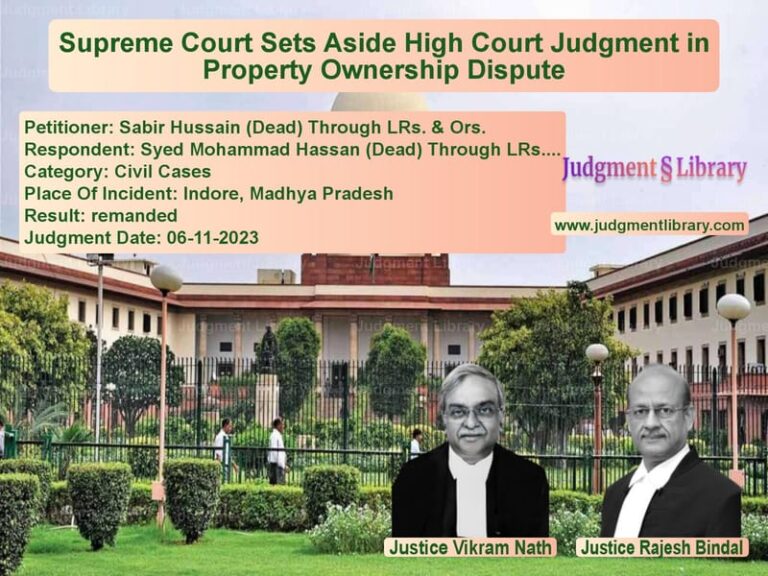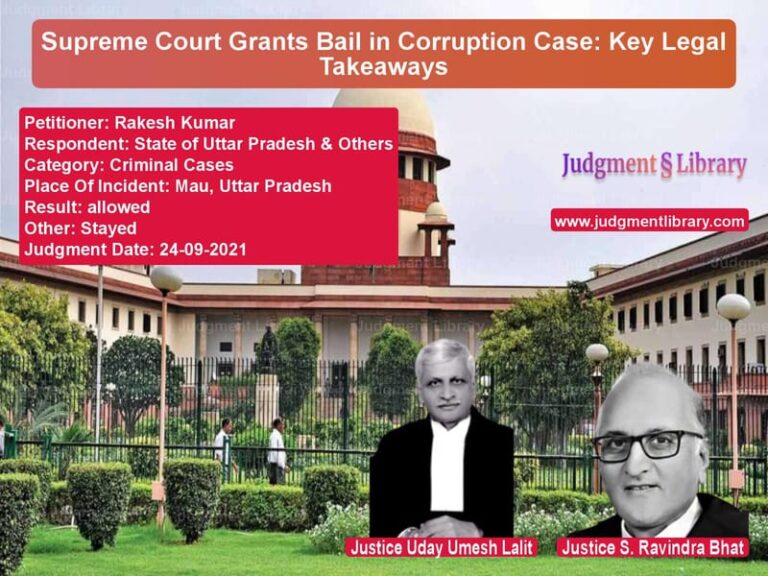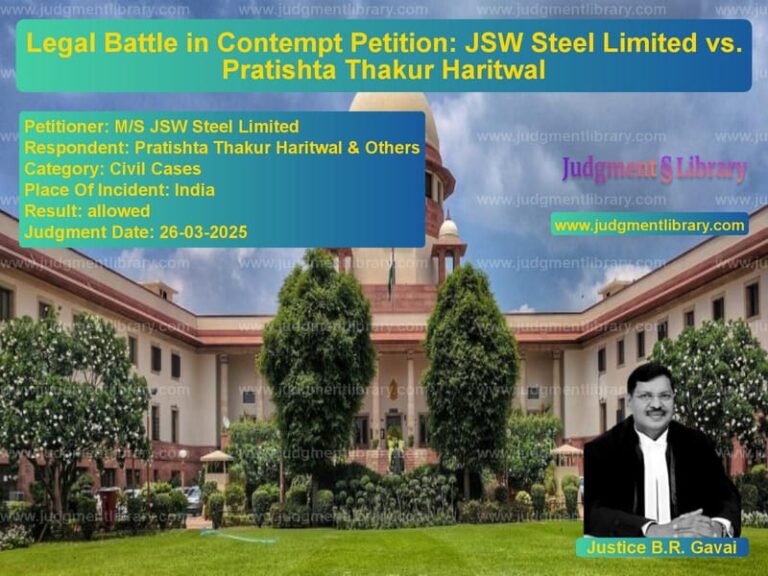Supreme Court Cancels Illegally Granted Admissions in Postgraduate Dental Courses
The Supreme Court of India recently ruled on a crucial case involving admissions in postgraduate dental courses in Dental Council of India vs. Sailendra Sharma & Others. The case focused on unauthorized admissions made by private dental colleges in Chhattisgarh, violating the prescribed procedures under the Dentists Act, 1948, and MDS Course Regulations, 2017.
Background of the Case
In 2018, the National Board of Examinations conducted the NEET MDS exam for admissions to postgraduate dental courses. Admissions were to be granted through centralized counseling by the Chhattisgarh government. Three private dental colleges—New Horizon Dental College, Maitri College of Dentistry, and Rungta College of Dental Sciences—intimated vacant seats to the Directorate of Medical Education for inclusion in the mop-up round of counseling. The mop-up round was conducted on May 30, 2018, and eligible candidates were allotted seats as per merit.
However, after the mop-up round concluded, these private colleges unilaterally granted admissions to students without notifying the Directorate. The admissions were processed after 4:30 PM on May 31, 2018, violating the regulations. Upon learning about these irregularities, the Chhattisgarh government issued a notice on June 6, 2018, canceling these unauthorized admissions.
Arguments by the Petitioner (Dental Council of India)
The Dental Council of India (DCI) challenged the High Court’s decision, which had overturned the Chhattisgarh government’s cancellation notice. The DCI presented the following arguments:
- The admissions were illegally granted by private institutions without following the centralized counseling process.
- The seats were required to be allocated only through the Directorate of Medical Education as per the established norms.
- The private colleges did not notify the government about vacant seats before filling them, violating admission procedures.
- Allowing such admissions would encourage unethical practices and undermine the merit-based selection process.
- The High Court’s order perpetuated an illegality by permitting students to continue despite their admissions being unlawful.
Arguments by the Respondents (Students and Private Colleges)
The students and colleges contended that:
- The seats remained vacant after the mop-up round, and the colleges acted in good faith to prevent them from going to waste.
- All students admitted were meritorious, and their admissions should not be canceled.
- The students had already completed a significant portion of their courses, and cancellation at this stage would cause irreparable loss.
- The government was aware of the vacancies and failed to act on time, making it unfair to penalize students.
Supreme Court’s Observations
The Supreme Court extensively reviewed the case and made the following key observations:
- The admissions were made in violation of established regulations, bypassing the centralized counseling process.
- Private institutions have no authority to admit students on their own without notifying the Directorate.
- Allowing such admissions would lead to backdoor entries, diluting the merit-based selection process.
- Just because students had completed part of their courses under an interim order, it does not legalize an otherwise illegal admission.
- The High Court erred in allowing students to continue despite clear violations of statutory regulations.
Final Judgment
The Supreme Court set aside the High Court’s order and reinstated the Chhattisgarh government’s cancellation of admissions. The Court held:
“The respective original writ petitioners were granted admissions by the private institutions in the postgraduate course illegally. Their admissions can be said to be backdoor entries. The admissions in the postgraduate course were required to be made only through counseling by the Directorate.”
Read also: https://judgmentlibrary.com/compassionate-appointment-and-eligibility-criteria-a-legal-analysis/
The Court further ruled that students admitted illegally must not be allowed to complete their courses, stating:
“Once it is found that the respective original writ petitioners were granted admissions illegally, thereafter to allow them to continue their course shall be perpetuating the illegality.”
Impact of the Judgment
This ruling sets a strong precedent against unauthorized admissions in medical and dental colleges. The key takeaways include:
- Strict adherence to centralized counseling rules is mandatory for admissions.
- Private institutions cannot bypass government regulations for admissions.
- Illegally admitted students cannot claim a right to complete their courses.
- The judgment upholds merit-based selection processes, preventing manipulation in admissions.
The decision reinforces the need for transparency and fairness in medical and dental admissions, ensuring that only deserving candidates are admitted through proper channels.
Petitioner Name: Dental Council of India.Respondent Name: Sailendra Sharma & Others.Judgment By: Justice M.R. Shah, Justice M.M. Sundresh.Place Of Incident: Chhattisgarh, India.Judgment Date: 20-10-2022.
Don’t miss out on the full details! Download the complete judgment in PDF format below and gain valuable insights instantly!
Download Judgment: dental-council-of-in-vs-sailendra-sharma-&-o-supreme-court-of-india-judgment-dated-20-10-2022.pdf
Directly Download Judgment: Directly download this Judgment
See all petitions in Recruitment Policies
See all petitions in Education Related Cases
See all petitions in Public Sector Employees
See all petitions in Termination Cases
See all petitions in Judgment by Mukeshkumar Rasikbhai Shah
See all petitions in Judgment by M.M. Sundresh
See all petitions in allowed
See all petitions in Quashed
See all petitions in supreme court of India judgments October 2022
See all petitions in 2022 judgments
See all posts in Service Matters Category
See all allowed petitions in Service Matters Category
See all Dismissed petitions in Service Matters Category
See all partially allowed petitions in Service Matters Category







